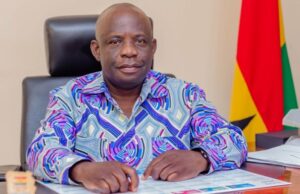Ghana’s energy generation must be non-weather dependent – Prof. B.J.B. Nyarko

Professor Benjamin Jabez B. Nyarko, Director-General, Ghana Atomic Energy Commission (GAEC), has advised that Ghana should have non-weather dependent energy sources to guarantee power for her industrialization agenda.
He said hydro and other renewable energy sources were weather dependent and unrealible, unlike nuclear power generation which was clean and non-weather dependent.
Prof. Nyarko gave the advice on Wednesday, at the opening of the Nuclear Power Ghana (NPG) media training workshop for Regional Managers and Editors of the Ghana News Agency in Accra, on the theme: “Strengthening and Sustaining Public Trust Through Accountable Reporting”.
He underscored the importance of nuclear power in Ghana’s energy mix, saying “we cannot put all our eggs into one basket,” else the country could run into great challenges as it had faced with both her energy and agricultural sectors which had being dependent on rainfall for decades.
“Ghana must shift its energy system sources from weather dependency to prevent this double agony,” hence the urgent need to increase the base load of energy, which included all other sources for industrialization, he added.
Prof. Nyarko, who doubles as the Board Chair of the NPG, gave a brief overview of Ghana’s nuclear journey, saying, the successful completion of the first phase with the fulfillment of all the 19 infrastructural issues to be considered for the establishment of a Nuclear Power Programme, had been put into a comprehensive report for Cabinet approval, after which the document would become a reference guide for all.
He said the benefits of nuclear power were enormous and included reduced electricity tariffs, compared to the current energy cost of 18 cents per kilowatts hour, while in countries like Korea electricity was being sold at five cents per kilowatt hour, because they had a strong and diverse energy mix dominated by nuclear energy.
He said nuclear energy was also a reliable and secured option, because “the power plant operates for 24/7 and could be operated for between 18 to 24 months before it is shut down for maintenance, so if it produces at least a 1000 megawatt of power for such a period is a lot”.
The Director-General also cited environmental friendliness as a key feature of operating a nuclear power plant, because it had zero greenhouse gas emission.
Ghana could become the net exporter of electricity to neighbouring countries per her location, bringing in more foreign revenue, he said.
He said nuclear power could further lead to a massive infrastructural development such as roads, hospital, and schools and the strengthen the national grid.
Prof. Nyarko encouraged the media to be very meticulous and circumspect when eporting on issues on nuclear energy and Ghana’s progress towards the construction of its first nuclear power plant.
Dr Robert Mawuli Sogbadji, the Deputy Director for Nuclear and alternative Energy, Ministry of Energy, and Coordinator, Ghana Nuclear Power Programme Organisation’s, commended the NPG for building a strong collaboration with the media.
He assured the media of opened doors at the Energy Ministry, for assistance and provision of education and information for the public.
Prof. Olivia Kwapong, the GNA Board Chairperson, said it was a joy to note that the mandate and vision of Osagyefo Dr Kwame Nkrumah was still ablaze within organisations such as GAEC and NPG, presenting the GNA, one of his creations, a golden opportunity of a collaboration to prosecute a worthy national agenda.
Source: GNA
